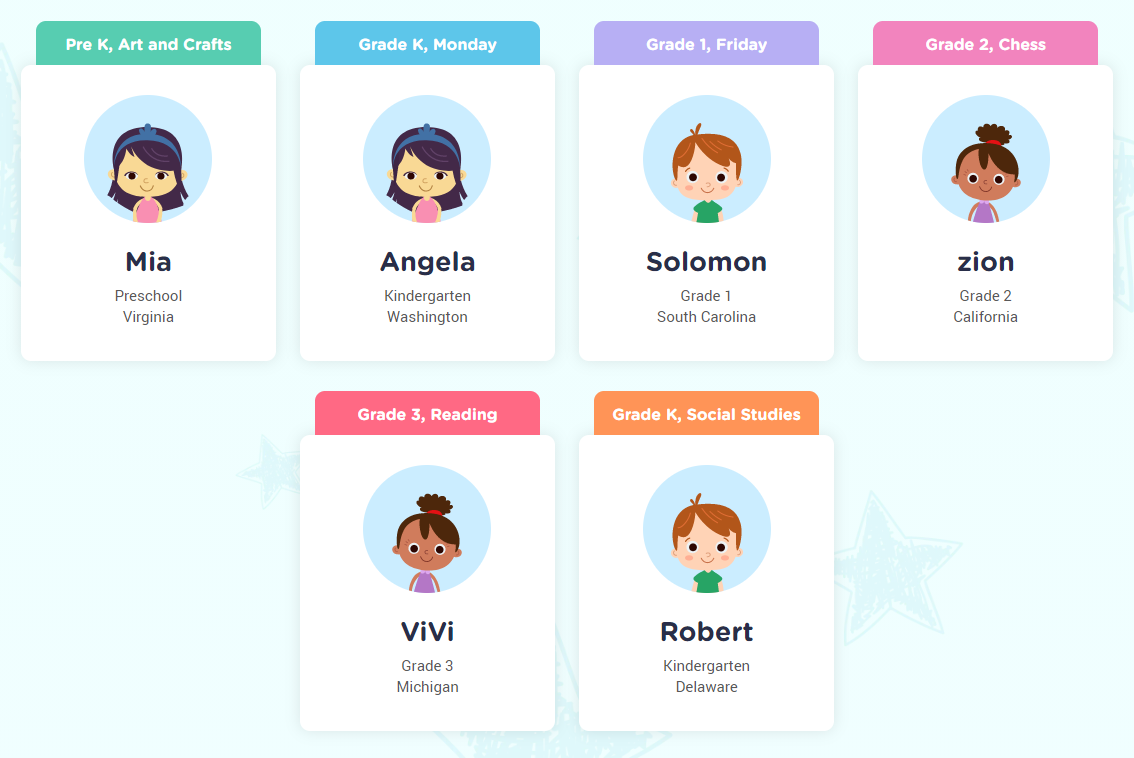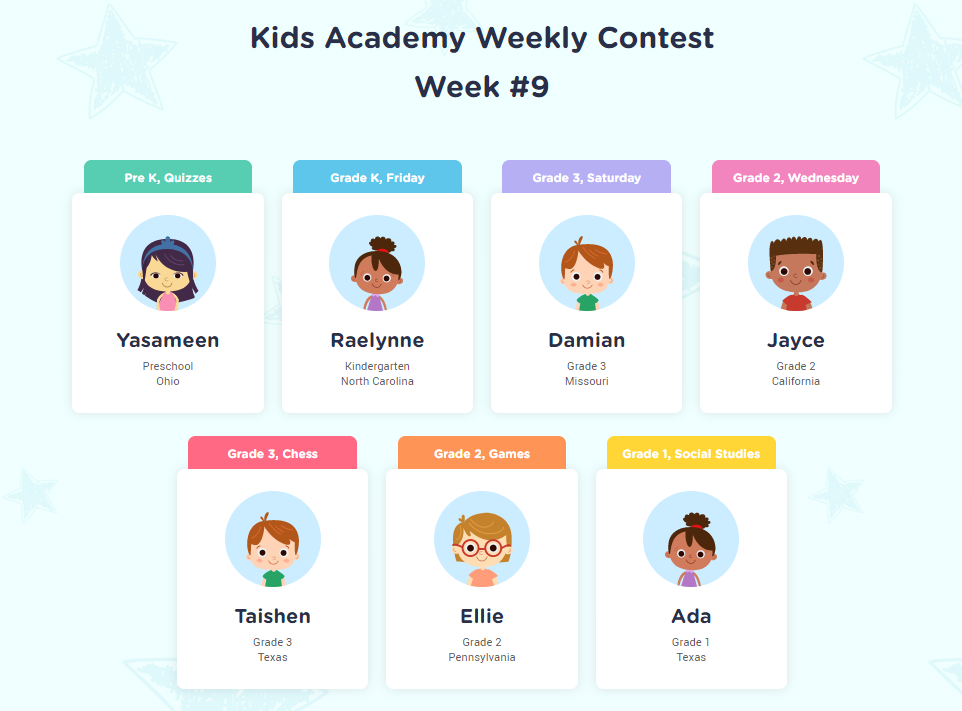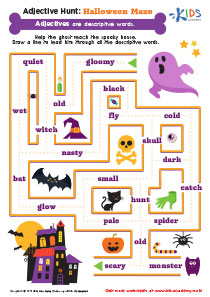1.9a Economic Systems worksheets With Answers for Grade 1
2 filtered results
Difficulty Level
Grade
Age
-
From - To
Subject
Activity
Standards
Favorites
With answer key
Interactive
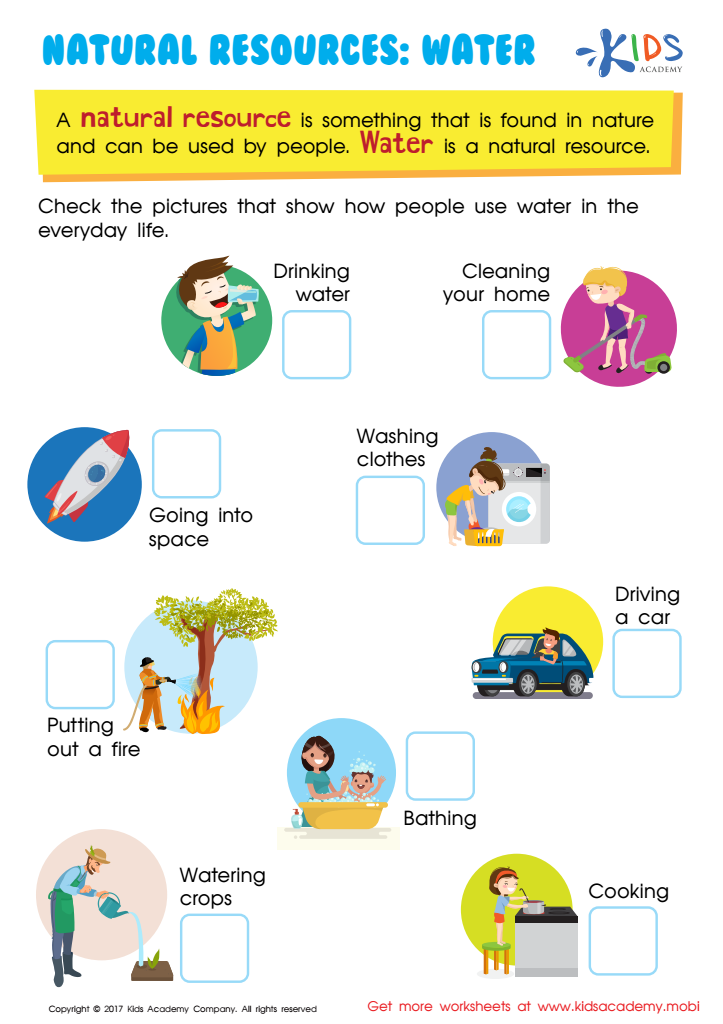

Natural Resources: Water Worksheet
With our natural resources water worksheet, your child will explore the significance of this precious resource.
Unlock your child’s understanding of water’s importance with our natural resources water worksheet. They’ll learn the many ways we use water in our day-to-day lives, and grasp the necessity of this vital natural resource.
Natural Resources: Water Worksheet
Worksheet
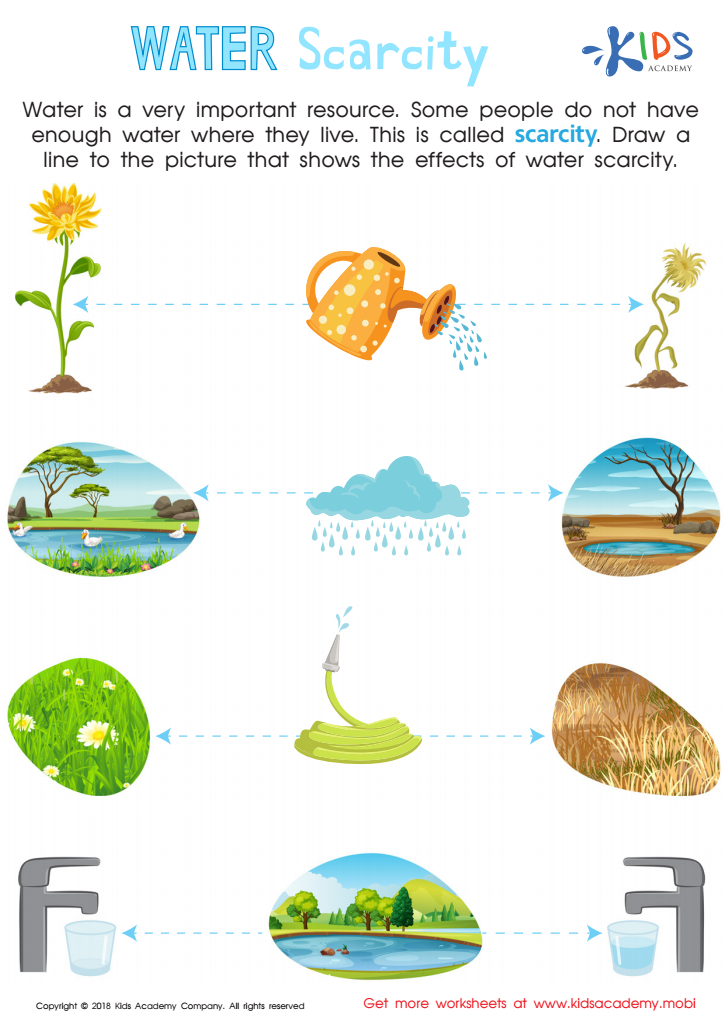

Water Scarcity Worksheet
Water is an essential part of our lives. Ask your students to list five everyday activities which require water. Use this worksheet to explain why water is important and how privileged we are to have access to it. Many people are not as lucky and face water scarcity. Explain this concept with a fun pdf, showing the effects of water scarcity.
Water Scarcity Worksheet
Worksheet
 Assign to the classroom
Assign to the classroom

